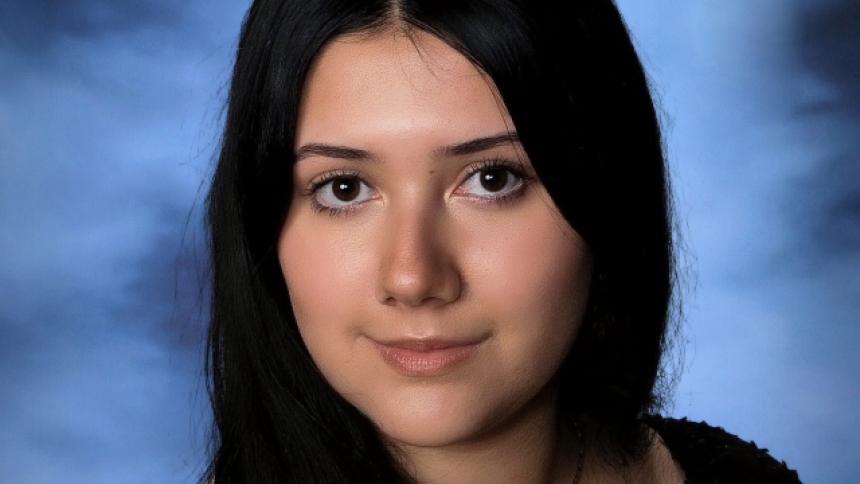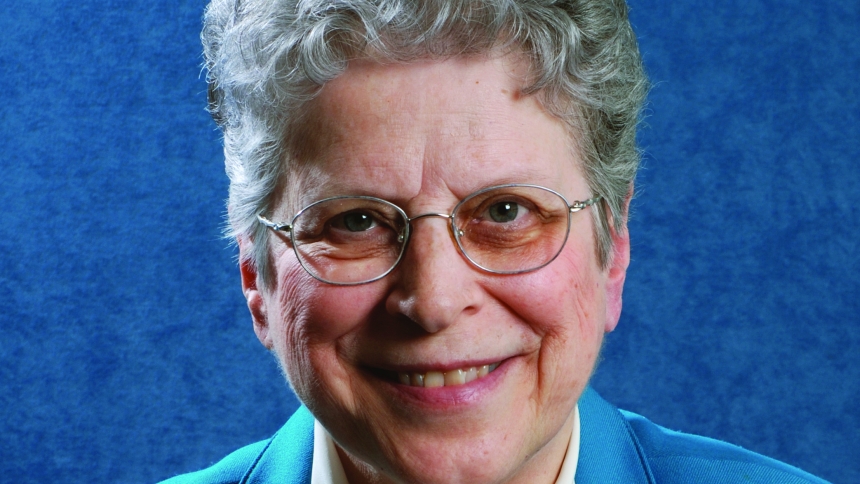
MUNSTER – What is happening on the other side of the globe, has suddenly become a concern for U.S. citizens tuning in to broadcast and Internet media to learn about the war unleashed on Ukraine by Russia. Catholics and other people of faith react with no less disgust or fear, yet gain peace of mind through the power of prayer, and the offering of material support.
The invasion’s shock waves were first felt in Northwest Indiana by those of Ukrainian birth or ancestry, some of whom are members of St. Josaphat Ukrainian Catholic Church in Munster.
Parishioners of the Byzantine Rite Eastern Catholic Church are in full comm with the worldwide Catholic Church, like the majority Roman Catholic or Latin Rite Christians.
“We cannot just be depressed. We have to support our parish here and our family and loved ones back in Ukraine,” said Father Volodymyr Kushnir, second-year pastor of St. Josaphat, who immigrated to the U.S. in 2007. “For them it is most difficult right now, but somehow we have to give them (monetary) relief and emotional and spiritual support.”
Under a canopy of ornate icons, Father Kushnir began his homily at the March 6 Divine Liturgy, or Mass, reading a letter of solidarity written by Bishop Robert J. McClory.
“Our hearts are filled with sorrow as we witness the death and destruction caused by Russia’s recent attack on the people of the Ukraine. Such senseless and unprovoked violence has created chaos, instability, and an escalating humanitarian crisis for citizens of this beloved country and the rest of Eastern Europe,” read Father Kushnir, from Bishop McClory’s letter.
In the letter dated March 4, Bishop McClory expressed his wishes that Ukrainian and Roman Catholics in the area join their prayers and fasting as “one Body of Christ.”
“May Our Lord, the Prince of Peace, bring peace and stability back to this region of the world. I especially invoke the maternal intercession of Mary, Queen of Peace to intercede for her children so that a swift diplomatic resolution may become a reality.”
Parishioners held a rally along Ridge Road in front of St. Josaphat church on March 5. They were greeted with cheers of encouragement, the sounding of car horns and people stopping to contribute to a Ukrainian relief fund.
Among those holding anti-war signage and Ukraine’s blue and gold flags, parishioner and rally leader Lyubob Moroz said she feels sick because of the Russian invasion. She was, however, heartened to witness the concern of many area residents, including Catholics, Protestants, and a rabbi, who offered wishes for peace.
“I feel completely terrible,” said Moroz of Hammond. “I’m from western Ukraine, close to Poland … it has been eight years of cold war, now it is serious.”
Ukraine native Olga Wasylowsky, who turns 100 this year, was a founding member of St. Josaphat in Hammond in 1958. She has many relatives living in the Ukrainian capital of Kyiv.
“I’m having a hard time accepting (the war), especially because I haven’t heard from my family,” said Wasylowsky. “I think the only thing I can do is pray to God that they will be okay.”
Contributions were made by thousands of Diocese of Gary faithful, who learned that the United States Conference of Catholic Bishops’ established annual collection for Central and Eastern Europe on March 6 will support that region of the world with emergency funding designated for Catholics in Ukraine.
Since the Russian military invasion of Ukraine, Pope Francis has made stark statements about the violence.
"In Ukraine, rivers of blood and tears are flowing. This is not just a military operation but a war which sows death, destruction and misery," Pope Francis said to those gathered in St. Peter’s Square in Vatican City on March 6. "In that martyred country the need for humanitarian assistance is growing by the hour … War is madness, please stop.”
The unpredictable actions of the more than 100,000 Russian troops fighting a lesser number of Ukrainian soldiers has created the greatest humanitarian crisis in Europe since World War II. Estimates are that two million Ukraine natives have fled to bordering countries such as Hungary, Poland, Romania and Slovakia.
The refugees’ arrival in North Atlantic Treaty Organization member countries offers a measure of security as the nations – including the U.S. – share a common defense pact.
Just across White Oak Avenue from St. Josaphat in Munster, seven Roman Catholic priests and one brother minister from the Carmelite Fathers Monastery.
Prior Carmelite Father Franciszek Czaicki (also called “Father Francis”), like the other religious, is a native of Poland. While he serves his vocation stateside some in his order minister in Ukraine.
On March 7, Father Czaicki confirmed that some Carmelite religious sisters escaped to safety in Slovakia. Nine priests, however, have elected to remain holed up with the citizenry, ministering to their spiritual needs near monasteries in Berdychiv, Gwozdawa and Kyiv.
“In Kyiv they have said Mass privately and transmit by Internet,” said Father Czaicki, who is serving his second term as prior, and marking 20 years in Munster. “Every day here after Mass we pray St. John Paul II’s prayer for peace.”
Father Czaicki, said when looking through the lens of faith he is always hopeful, but he is deeply disturbed by the recent failures of the U.S. Administration’s “weak” diplomacy before the war, and considers Vladimir Putin to be a “liar” and a danger to the entire world.
Carmelite Father Bartlomiej Stanowski (also called “Father Bart”), who has ministered at the Carmelite Monastery since 2006, believes today’s young people have trouble accepting the reality of war, “Thinking it is like a movie or a game.”
“We can’t be saying, ‘It’s not my business because I live very far from the Ukraine,’” said Father Stanowski, also praising the Polish nation’s care of war refugees.
Father Stanowski said Scripture is filled with turnaround stories, as are the history books of Eastern European nations.
“People in these times may think prayer is something very weak, but truly we know God is working miracles,” said Father Stanowski. “We have to remember St. Paul (the apostle) was like a terrorist in his time, going to every city and killing Christians. Jesus made a miracle: from a killer he made a huge apostle.”
Contributions to the USCCB’s Eastern European and Ukraine relief fund can be made by visiting https://usccb.igivecatholictogether.org/organizations/usccb-church-in-central-and-eastern-europe.



